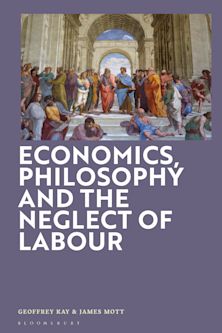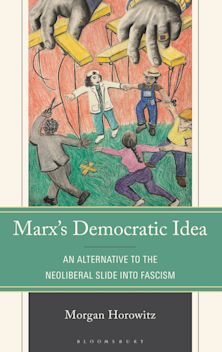- Home
- ACADEMIC
- Philosophy
- Social and Political Philosophy
- Albert Camus and the Political Philosophy of the Absurd
Albert Camus and the Political Philosophy of the Absurd
Ambivalence, Resistance, and Creativity
Albert Camus and the Political Philosophy of the Absurd
Ambivalence, Resistance, and Creativity
This product is usually dispatched within 2-4 weeks
- Delivery and returns info
-
Flat rate of $10.00 for shipping anywhere in Australia
You must sign in to add this item to your wishlist. Please sign in or create an account
Description
This book demonstrates that Albert Camus’ concept of absurdity is best understood when decoupled from what might be called its ontological aspirations. Rather than pretend that absurdity usefully describes ‘the human condition,’ ‘the silence of god,’ ‘the deprivation of transcendence,’ or ‘metaphysical revolt,’ I argue that, for absurdity to be a fruitful idea, it must be approached as a psychological disposition and its basic tenets must be translated into phenomenal and psychological language. The book defines the particular psychological disposition of absurdity by analogizing it with the constructs of ambivalence, integration, conscious resistance, and creativity. Its central contention is that absurdity may be interpreted as a kind of ambivalence and, thus, as an aspect of psychological experience that demands a creative and mature response.
Absurdists’ cries of spiritual anguish need not persuade us that the conditions of loss, terror, alienation, and deprivation they describe are objectively ‘real’. If, instead, descriptions of absurdity may be understood as psychological accounts of the powerfully ambivalent impulses toward merger and toward separateness, toward group-immersion and toward subjectivity, then absurd revolt involves recognizing, resisting, and integrating such impulses in order to facilitate mature ethical action. It may be possible, I argue, by examining the dynamics of absurdity, ambivalence, resistance, and creativity, to develop a new grounding for an absurd political morality. This book asks what unique properties and advantages this renewed political morality offers and applies this grounding to some of the political and moral crises of Camus’ time and of our own.
Table of Contents
Albert Camus’ Absurd
Absurdity in Moral and Political Philosophy
Absurd Confusion
An Absurd and Ambivalent World
The Organization of this Work
Chapter 2: Absurdity in Context
Nietzsche’s Tragic Ethos
Kierkegaard’s Absurd Faith
Sartre’s Existential Approach
Samuel Beckett and the Theatre of the Absurd
Thomas Nagel’s Attitudinal Approach
Chapter 3: The Meaning of Absurdity: Albert Camus and his Critics
The Meaning of Camus’ Absurd
The Status of Camus’ Absurd
Absurd Facts, Data, and Values
Chapter 4: Absurdity and Ambivalence
Ambivalence in the Early Psychoanalytic Tradition: Bleuler and Freud
Ambivalence and Splitting in the Work of Melanie Klein
Ambivalence and the Borderline Personality
Absurdity as Ambivalence
Camus’ Absurd Ambivalence, Part 1: Merger
Clarity and Unity
Loving Mother Nature
Jean Grenier’s Influence
Camus’ Absurd Ambivalence, Part II: Selfhood and Autonomy
The Three Refusals
Chapter 5: Absurdity and Ambivalence in The Stranger
The Modern Subject and Kant’s Kingdom of Ends
Meursault’s Taboo
Critical Absurdities
Chapter 6: Revolt, Resistance, or Rebellion?
The Road to Révolte
The Is and Ought of the Absurd
Revolt and Rebellion in The Rebel
Metaphysical Rebellion and the Origins of the Absurd Ideal
When Good Rebellions Go Bad: Revolution
Chapter 7: A Grounding for an Absurd Political Morality
Absurd Borderlands
Absurd Responses
Splitting Into All or Nothing
Ambivalence and the Limitation of Rebellion
La Mesure and Moderation
Plagues Within and Without
Rebellion and Creativity
Bad Faith, Good Revolt
Chapter 8: Political Theoretical Conclusions
Kaliayev and the ‘Just’ Assassins
Camus’ Algeria
Conclusion
References
About the Author
Product details
| Published | 18 Dec 2013 |
|---|---|
| Format | Hardback |
| Edition | 1st |
| Extent | 214 |
| ISBN | 9780739181362 |
| Imprint | Lexington Books |
| Dimensions | 237 x 159 mm |
| Publisher | Bloomsbury Publishing |
About the contributors
Reviews
-
Bowker recasts the Camusian theme of absurdity in pursuit of a distinct moral and political philosophy. . . .He disentangles the absurd from Camus's biography and codifies an independent ethic of the absurd. Beginning with a historical overview of the absurd, the author details the doctrine of absurdity directly through close analysis of Camus's works and indirectly through the lens of the concept of ambivalence. Both The Stranger and The Rebel function as loci in Bowker's analysis, and the exegetical chapters examining each book offer subtle reappraisals of traditional scholarship. Bowker wraps up with two chapters arguing for the relevance of absurd morality in the political sphere, and he ends with a turn back to Camus's biography and views on political assassinations and Algerian independence. In the end, Bowker posits that a political morality of the absurd arises through acknowledgment that all political systems and acts are fraught with injustice and that one need not necessarily rebel against them. Only by embracing the absurd can one develop a creative and mature ethical space for political deliberation. Summing Up: Recommended. Graduate students, researchers, faculty.
Choice Reviews
-
Matthew H. Bowker’s study, Albert Camus and the Political Philosophy of the Absurd: Ambivalence, Resistance, and Creativity, is arguably the most insightful, thoughtful, and well-researched book on Camus studies to appear in recent years. . . .Every once-in-a-great-while there comes a book that is so engaging, so thorough, and so enjoyable to read and comprehend that it becomes a classic and a necessity for all academics in that particular field to own, study, and know. Bowker’s Albert Camus and the Political Philosophy of the Absurd is that book. There is no doubt that it will indelibly shift and change the foci of Camus’s political thought in addition to offering a fantastic and clarified understanding of the Absurd. Without reservation, every serious scholar of Camus studies needs to have this book in his or her library. It is invaluable.
Journal of Camus Studies
-
Bowker’s approach . . . opens the way, he suggests, to advances in contemporary psychosocial understandings of moral and creative action and interaction. . . .This book is a cogent and thought-provoking reappraisal of Camus and key aspects of political philosophy.
French Studies
-
All things considered, this is a book that will probably be of most interest to those in fields such as philosophy or political science.
French Review
-
Bowker’s book examines Camus’ notion of the absurd in relation to the findings of modern psychoanalytic theory of ambivalence. His reading sets aside the 'ontological' questions most often associated with the absurd—the ‘human condition,’‘the silence of god,’‘the deprivation of transcendence,’‘metaphysical revolt’—in favor of an analysis that treats the experience as a ‘psychological disposition.’ By means of this approach, Bowker succeeds both in overcoming the fruitless logical and epistemological debates about Camus’ achievement that have dominated the literature for decades and in opening up a space in which the anthropological and experiential depth of Camus’ analysis might be regained. Paradoxically, he also restores the ontological realities he initially sets aside to their rightful place in Camus’ thought—‘more as overpowering love-object[s] than an unthinkable ‘is-ness’.’ A thoughtful and engaging book.
Ron Srigley, Laurentian University of Sudbury



































